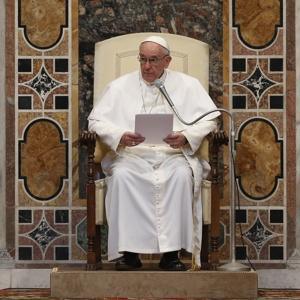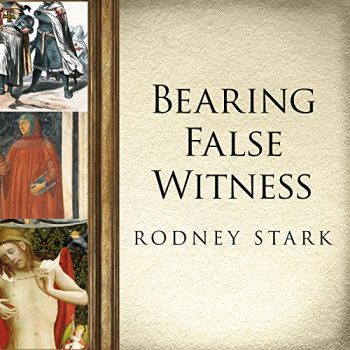Illuminator
Well-Known Member
It's not the image that is being venerated, it's the prototype, and thouroughly biblical. Sadly, your hyper-literalism of one verse results in a stupid, ridiculous conclusion.No I do not agree, NOR support, erecting a mans IDEA of an image and bowing down before that image.
THE INCARNATION PRINCIPLE
There is, in the Catholic vision of reality, a profound understanding of the impenetration of matter by grace which we call the Incarnational principle. The Incarnation of God the Son as Jesus Christ is the bedrock which underlies the Christian vision of the relationship between God and man. In assuming a human nature, God demonstrates at once that creation, including human nature, is not only good but is capable of being further elevated through the impenetration of the Divine life.
This is the basis of the entire sacramental system, which uses outward (material) signs to transmit to us a share of God’s life, from the initiation of the believer’s journey in Baptism to its conclusion in Anointing of the Sick. It is the basis of the Church, a visible society which itself serves as a living connection between God and man, a sort of meta-sacrament for the transmission and embodiment of grace. It is even the basis for all of society, which begins with a proper understanding of matrimony, which St. Paul tells us is a model for the relationship of Christ and the Church. For in matrimony a man and a woman join in a profound sanctifying union of both body and spirit, a union which is both faithful and fecund, generating new life.
This understanding of the goodness of creation, of matter, of humanity and of human joys and aspirations—and the lesson that this goodness is designed to be further filled, animated and elevated by the love of God—is so central to God’s plan that Christianity begins and ends with it. It begins with God’s self-emptying of glory as He takes on human flesh and it ends in the Resurrection of the glorified Christ, who henceforth forever retains His identity as man.
It ought to be obvious to just about everybody that no other religion incorporates this particular (and particularly profound) understanding of the relationship of nature to nature’s God. Every human philosophy inevitably makes too much of nature or too little, and sometimes both at once, as in modern secularism which sees nature as all and so ignores that to which it points. What may be surprising, however, is that even among Christians those who have doctrinally fallen away from Rome have largely lost the unique and special wholeness of this Christian vision. Thus, from its beginning, Protestantism has been preoccupied with what it regards as the depravity of human nature, its radical incapacity for goodness, its reliance on grace as on something which supplants man’s nature rather than penetrates it.
Here we find the cause of Protestantism’s inability to understand the importance of works to salvation, which led Luther to revise Scripture and declare the letter of St. James to be apocryphal. Here also we have the root of Calvin’s notion that some are predestined for heaven and others for hell by nothing but the arbitrary will of God. Nor are we surprised to find Protestant sects which have outlawed the celebration of Christmas itself, distrusting the human values and human joy which Christmas both represents and fulfills. Indeed, from the point of view of nature, Protestantism must be described as a very thin, a very incomplete religion.
By contrast, Catholicism flowers in nature, transforming and elevating not only man himself but man’s culture. The astonishing achievements of Catholic culture over two millennia—in art and literature, sculpture and architecture, education and government, work and play, fast and feast—are one and all rooted in the Incarnational principle. The sense that the human body is itself a repository of grace, a temple of the Holy Spirit, fosters a unique Catholic mode of being in which the mind and spirit are never alone, never cut off. Rather man worships God in his body, and carries all of nature beyond itself in the quest to fulfill the very end of religion, which is for all creation to give glory to God.
Not in the abstract, then, is Catholic salvation worked out, but in the concrete; not in the general, but in the particular. The Catholic vision is not one of being “attached” to Christ, but of “putting on” Christ (Gal 3:27), not one of merely receiving an external gift, but of living the Christ life deep within—so that I live, no not I, but Christ lives in me (Gal 2:20). Each virtue is cultivated, each habit transformed and elevated, each relationship purified, each work ennobled. And the power for this continuous transformation is nourished—no, actually ingested—and formed into community through the Eucharist, the Word quite literally made Flesh, the Body and Blood really and actually present, not in figure or even in grace alone, but in its very substance.
Every Catholic is called to a life-long process of incorporating (I choose the word advisedly) his whole self, body and soul, into Christ, and not only his self but his loves, his labors, his own small creations, and the entire world over which he has been given dominion. This project, in which no detail is neglected or flattened, and no element lost or discarded, is unique to Catholicism. As I have said, it is a project rooted in the Incarnational principle. But even the Incarnational principle is not so much explained as demonstrated, not so much taught as lived. It was lived first by Christ Himself, born of Mary and protected by Joseph, in Bethlehem, in a stable, in a manger—and so at length in us.
SOURCE





